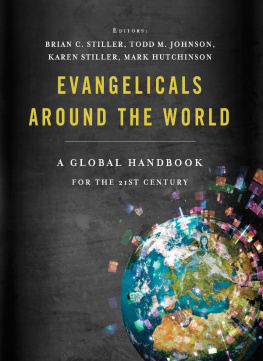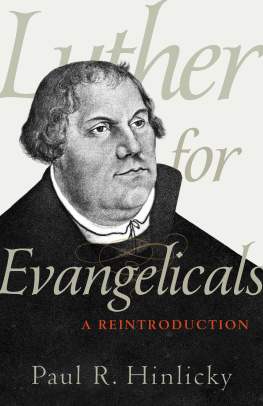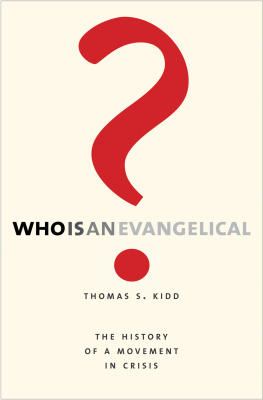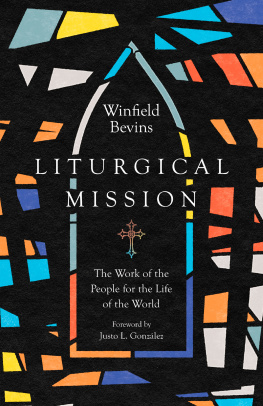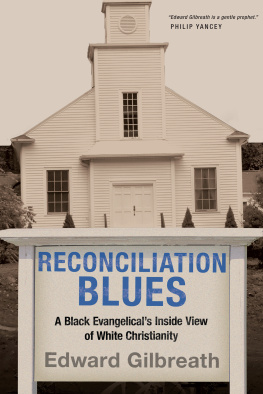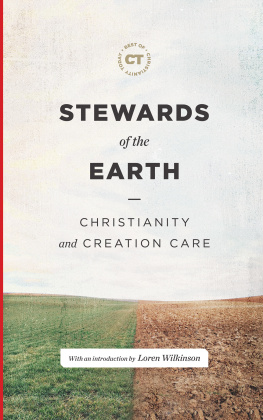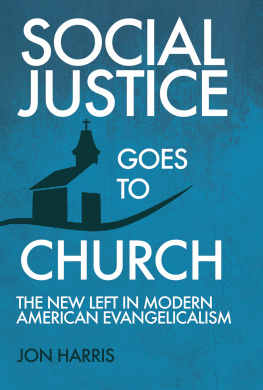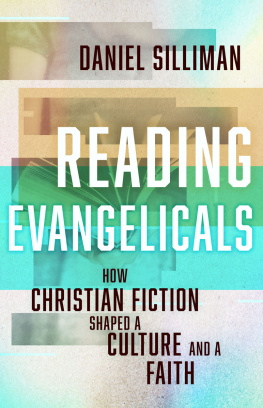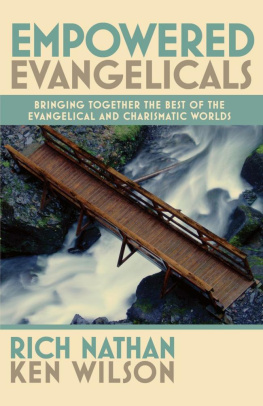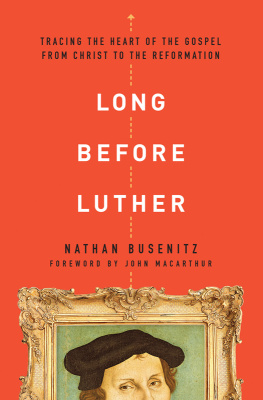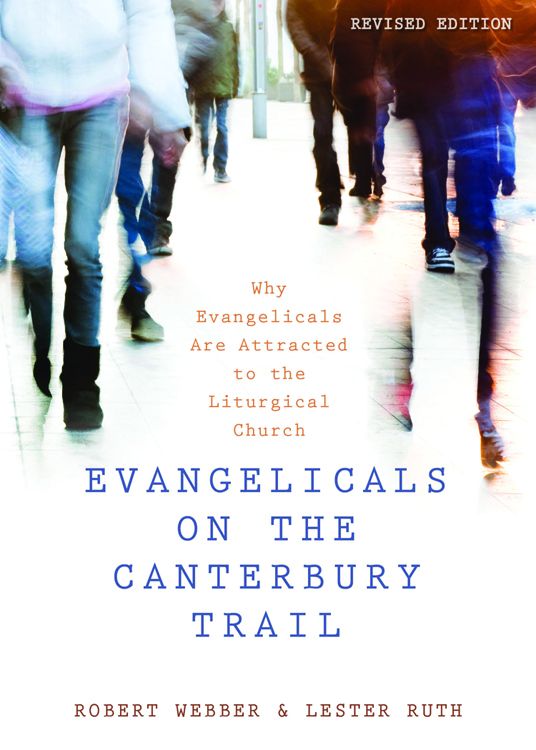EVANGELICALS
ON THE
CANTERBURY
TRAIL
Why
Evangelicals
Are Attracted
to the
Liturgical
Church

ROBERT WEBBER & LESTER RUTH

Copyright 1985 by Robert Webber
Copyright 2012 by Joanne L. Webber
All rights reserved. No part of this book may be reproduced, stored in a retrieval system, or transmitted in any form or by any means, electronic or mechanical, including photocopying, recording, or otherwise, without the written permission of the publisher.
Unless otherwise noted, the Scripture quotations contained herein are from the New Revised Standard Version Bible, copyright 1989 by the Division of Christian Education of the National Council of Churches of Christ in the U.S.A. Used by permission. All rights reserved.
Morehouse Publishing, 4775 Linglestown Road, Harrisburg, PA 17112
Morehouse Publishing, 445 Fifth Avenue, New York, NY 10016
Morehouse Publishing is an imprint of Church Publishing Incorporated.
www.churchpublishing.org
Cover design by Laurie Klein Westhafer
Typeset by Rose Desgin
Library of Congress Cataloging-in-Publication Data
Webber, Robert.
Evangelicals on the Canterbury Trail : why evangelicals are attracted to the liturgical church / Robert E. Webber ; revised by Lester Ruth.[Rev. ed.].
p. cm.
ISBN 978-0-8192-2851-2 (pbk.)ISBN 978-0-8192-2852-9 (ebook) 1. Evangelicalism and liturgical churches. 2. Anglican converts. 3. Episcopal Church--Membership. 4. Anglican Communion--Membership. I. Ruth, Lester, 1959 II. Title.
BR1640.W42 2012
270.8'2--dc23
2012034422
CONTENTS
PART 1
Why the Anglican Tradition?Robert Webber
PART 2
Other Pilgrims Share Their Stories
PART 3
The Canterbury Trail and Todays Churches
Although Robert Webber told it with a touch of sadness toward the end of the original Evangelicals on the Canterbury Trail, the story of how a colleague once asked him Can any good thing come out of Wheaton? now causes me to smile just a tad. And perhaps it should for anyone who knew Webber and has some idea of the breadth of his impact on worship renewal over the last several decades. Can any good thing come out of Wheaton College (Webbers institution at the time)? Indeed, it definitely can, has, and will, thanks to Bob Webber.
Writing just after the fifth anniversary of his death in April 2007, I can state from personal experience that he is still doing quite a bit of good. His impact continues among those who are influenced today by the wisdom of the ancient churchs life. I have the privilege of hearing about this twice a year as I help orient the new students coming into the Institute for Worship Studies, an institution that now bears his name. Asked how it was they ended up enrolling, time and again the studentsfrom Pentecostal to Anglicanaffirm it was a certain book, article, or workshop by Bob Webber that opened them to the possibility that paying careful attention to historys treasures is a valid path toward faithfulness and renewal in worship. As John Witvliet of the Calvin Institute of Christian Worship states it, Webbers work has prompted many evangelicals to take worship seriously in a way they had not before.
Among his writings, the book you now hold has a particular place of influence. I have heard directly from many of its impact on their own journey onto the Canterbury Trail. I know there are Episcopal and Anglican clergy who took up their vocation because this book stirred them to pick up and head for a new land. Written as Webbers own testimony of his journey from Baptist roots to Anglicanism, and reinforced by others who testified of their similar journey along the trail, this book has served as a kind of guide since 1985 on why such a journey might be desirable and on the delights to be found on it. I offer this revision in the hope it continues the spirit of the original.
The plan for revision was simple: If Robert Webber wrote it, it was kept with only the smallest changes. New are the testimonies of others who have traveled on the Canterbury Trail. These new voices show the gates at the beginning and the end of the trail are still open and inviting. Several new concluding chapters also seek to place these stories in a bit of a broader context, concluding with a revision of the original last chapter as a tribute to Robert Webber as a kind of embodiment of his vision of a holistic church.
There is one other new element: my own word of thanks to those who have made this revision come to pass. Foremost among these are Stephanie Spellers, Nancy Bryan, Jo Bailey Wells, Jessica Jones, Tanner Capps, and especially, Joanne Webber. Thank you, too, to those who have contributed to this revision and to those whose stories inspired me in this process even though I was unable to include them in this edition.
Finally, I encourage readers to be generous in their reading of Webbers original references to the Episcopal Church. You will see in this book that currently the Canterbury Trail in the United States does not necessarily pass only through the Episcopal Church denomination, as the original version tended to presume. The materials below reflect this variety even though Webbers original term has been retained. More explanation is provided in one of the concluding chapters.
Recently, when I was giving lectures at an evangelical college, a faculty member asked if we could meet somewhere privately.
When we were seated in the privacy of his office, I could tell by his darting eyes and fidgety mannerisms that he was nervous. Clearing his throat and adjusting his body to a comfortable position, he began. The reason I wanted to talk with you is that I find myself following a spiritual journey similar to yours. My family and I have been active members of a local evangelical church for a number of years, but find we need something more. We now attend the early service at a local Episcopal church, then go to the church where we are members for Sunday school and morning service. Thats okay for now, but we cant go on forever like that. Can you give us some advice?
Then there is another scenario that happens in my office quite frequently. A student will drop by and say, Can I talk to you about the liturgical church? While some are interested in be coming involved in the church, others are only curious.
There are other students who are already involved in liturgical churches. They want to talk about the concern expressed by parents who dont know how to deal with the fact that their child is being drawn to a Christian tradition other than their own.
And when I speak in liturgical churches, there is always a great deal of curiosity about evangelicals. Who are they? How do they differ from fundamentalists? What kind of influence might they have in the liturgical church?
These four groups of peoplethose who are in a serious spiritual pilgrimage into the liturgical tradition, students and others who may be curious, parents who are bewildered, and liturgical Christians who want clarification about the evangelicals in their midstare the people to whom this book is written.
Evangelicals on the Canterbury Trail will not answer every question. But it will at least provide an introduction to the phenomenon of evangelicals moving toward the liturgical tradition. While I cannot provide any statistics stating how many people are involved in this movement, I can say that I am overwhelmed by the number of people I meet who are either journeying the pilgrimage described in this book, or at least somewhat influenced by the concern to restore aspects of historic Christianity inadequately represented in their own church.


